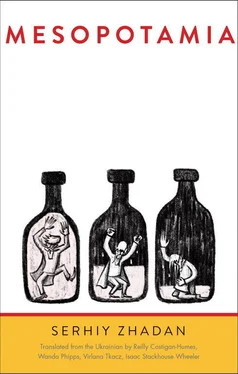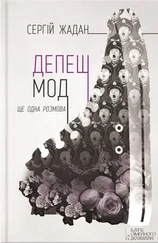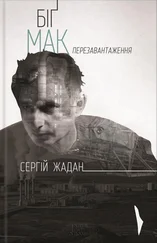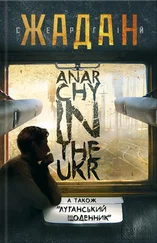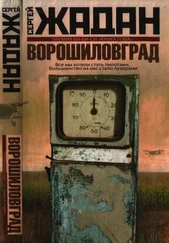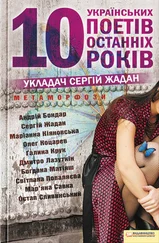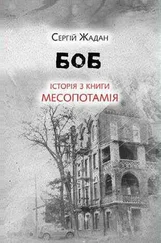Serhiy Zhadan
MESOPOTAMIA
PROSE TRANSLATED FROM THE UKRAINIAN BY REILLY COSTIGAN-HUMES AND ISAAC STACKHOUSE WHEELER
POETRY TRANSLATED FROM THE UKRAINIAN BY VIRLANA TKACZ AND WANDA PHIPPS
Nobody knows where they came from or why they settled on these rivers, but their affinity for fishing and knowledge of pilotage indicates that they arrived by water, sailing up the rivers, against the current. Their language seemed perfectly suited for songs and maledictions. Their women were tender and defiant, the kind that give birth to brave children and serious problems.
—
The True History of the Sumerians, Volume 1
Part I: Stories and Biographies
Translated from the Ukrainian by Reilly Costigan-Humes and Isaac Stackhouse Wheeler
Marat died forty days ago. Then spring came to the city. It had almost passed by the time we buried him, on Remembrance Day, at the beginning of April. Now overgrown grass had charred the hills green—summer was on its way. The traditional forty days of mourning were enough for us to calm down and forget about the whole thing. But then his parents called to remind us, and I thought to myself, “Yeah, I guess it’s only been forty days.” The dead don’t have any outstanding grievances; it’s the living who are always on your case.
A few friends and neighbors buried him. Most of his friends—and he had throngs of them, all over town—simply couldn’t believe they were being invited to his funeral. They apologized for being so doubtful, and then they came to the cemetery and looked for Marat’s headstone. That April was a rainy one; stray dogs trotted along after the van transporting the casket like an honor guard, occasionally thrusting their bodies at the black wheels of our Volkswagen hearse because they just couldn’t stand to watch Marat depart for the kingdom of the dead. Solemn throngs of people walked through the cemetery, ascending hills where the low-hanging clouds pressed close to them, and then descending into the valley where the deluge pooled. They honored his memory as best they could, mixing alcohol with rainwater. We were the only people to show up at the cemetery with a dearly departed friend in the back of their vehicle, so we looked a bit out of place—it was as if we’d come to a music shop with our own grand piano. The fact that it was Easter made us feel all mixed up—our sorrow seemed inappropriate. Who dies on Easter? Typically, people rise from the grave.
□ □ □
Marat’s death wound up being a lot like his life—illogical and shrouded in mystery. It was late Saturday night, or early Sunday morning. Marat hadn’t gone to church, because he considered himself a Muslim, and a nonpracticing one, no less, but he had gone out for cigarettes in the middle of the night, wearing his slippers and clutching a 50-hryvnia bill in his fist. He’d gotten shot right by the kiosk. Nobody was there to see it happen; they were all in their respective churches. The clerk working the night shift said she hadn’t heard any gunfire, but she could have sworn she did hear people singing and a motor revving up. She claimed she could identify those voices if she heard them again, although she wasn’t sure if they’d been male or female. Also, she’d managed to write down the number of the supposed getaway car; however, it matched the plates on the ancient Zhiguli that had been parked outside the student infirmary for the past year or so. Nobody touched it but the street sweepers who stashed scraps of cardboard and empty bottles in it. “Well, looks like the mob has made a comeback,” we remarked, thinking back to the tumultuous nineties. “Who’s next?”
It didn’t make much sense why anyone would have wanted to kill him. Marat didn’t run his own business, he stayed out of city politics, and he didn’t have any enemies; well, maybe he sometimes wouldn’t recognize one of his friends and would walk right on by without saying hi, but come on, is that any reason to gun someone down? The city hadn’t seen any street shootings for over ten years—well, that’s if you don’t count people shooting at cash-in-transit cars. But why would you? Do you know anybody who drives one? We could only guess what had happened that night.
Forty days passed; time pressed forward, the water in the rivers overflowed their banks and then receded again. The days had started getting warmer. I didn’t want to go—I had even decided to call his parents and tell them I was sorry that I couldn’t make it. But then I figured I’d be thinking about him all night anyway, so I might as well do it with my friends and relatives. It’s always better to lose your mind in familiar surroundings. I left my apartment, passed my old school, stopped by the kiosk, and looked at their cigarette selection for a long while. I couldn’t make up my mind, so I didn’t buy any, and then I thought about heading back home after all, but I just kept going instead. I barreled down the steep hill by the Institute and skidded to a stop when I got to Marat’s street. It was quiet. Lethargic canine bodies were warming up in the afternoon sun. Detecting movement near the house, the top dog lifted his head, his dark, attentive gaze lingering on me, then sank down again and closed his weary eyes. Nothing had happened. Nothing had changed.
Marat lived just a few blocks away from me, closer to the river. Just a three-minute walk. Everything you could ever need was right there: maternity clinic, daycare center, music school, army recruiting office, furniture stores, pharmacies, hospitals, and cemeteries. You could live your whole life without venturing outside our neighborhood, without even going to the next metro station—and we never did. We grew up in old apartment blocks that had been rebuilt and renovated countless times; in the morning, we’d run out of their damp stairwells. At night, we’d come back, to sleep under their leaky roofs, which were always getting patched up but were never really fixed. From our hill, hanging above the river, we could see the whole city. Standing outside our buildings, we could feel the rocks somewhere down beneath our feet, the rocks on which everything was built. In the summertime, those rocks would heat up and so would our bodies; in winter, they’d freeze and everyone would catch colds.
Their yard faced the TB clinic; their street stretched out all the way to the old warehouses. On one side, down below, beyond the city’s rooftops, were the river and the bridge, black factory buildings, new apartment complexes, and Kharkiv’s impassable maze of single-family homes. On the other side, atop the hill, were the city’s main streets, churches, and commerce. I went through the gate, feeling the matter of my life beneath my feet—dust, clay, and heaps of sand so dense that not even the mighty grass could break through them. The walkway leading up to their house was paved with cracked brick and stones—Marat had been threatening to dump asphalt all over the whole damn place for years, but something had been holding him back, so everything stayed the same—two dilapidated, half-empty, two-story structures, built before the Bolshevik Revolution. There were flowerbeds in the middle of the yard, shrubs up against the house, apple trees toward the back, and then the blackened brick wall of a building that faced their neighbor’s yard. Marat’s family had hauled some tables and chairs outside; the neighbors had brought their own stools so they’d have a place to sit. Apple trees shone above the tables; white petals kept falling into the salads, adding zest and bitterness.
I said hello. The other guests nodded in reply; one of the women produced an extra stool from somewhere underneath her and handed it to me, so I squeezed in between two warm May bodies.
Читать дальше
